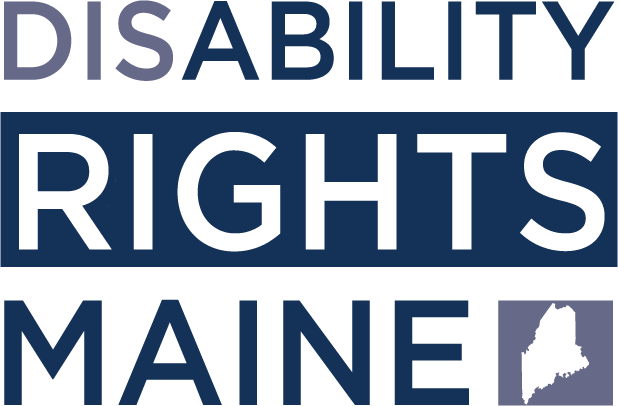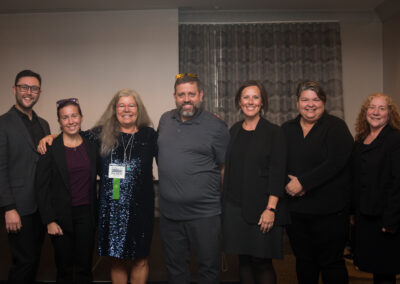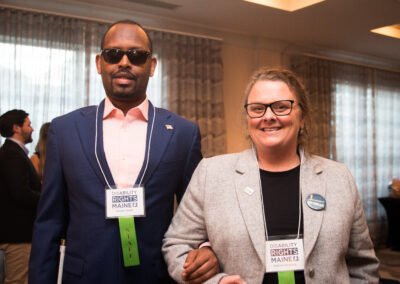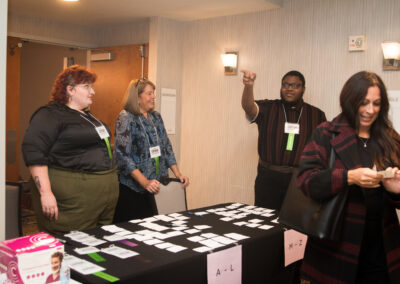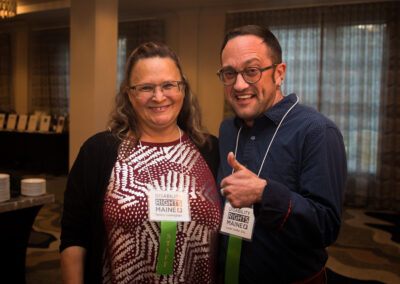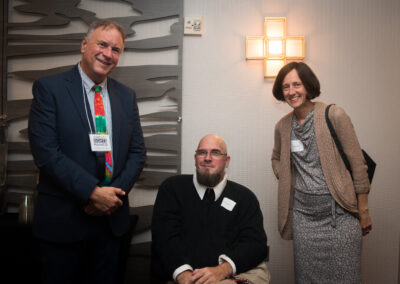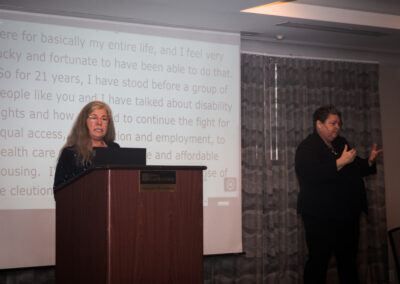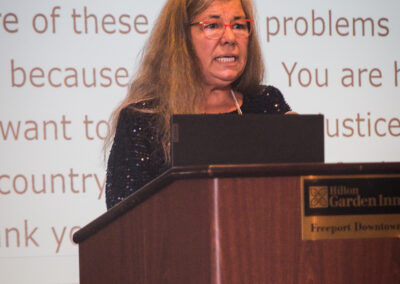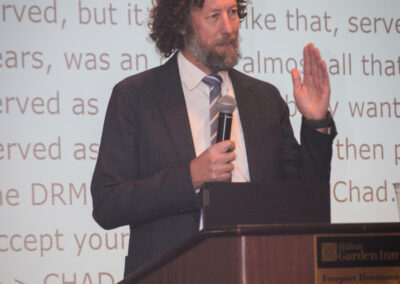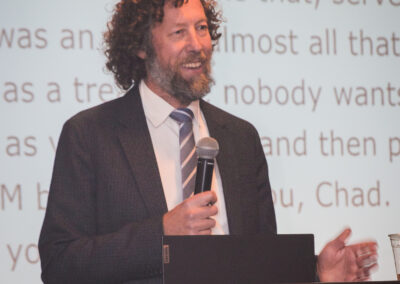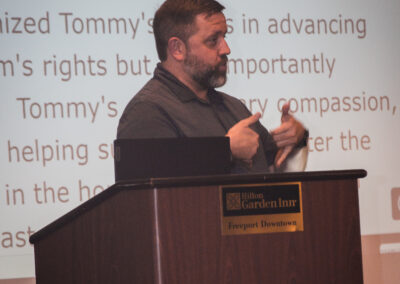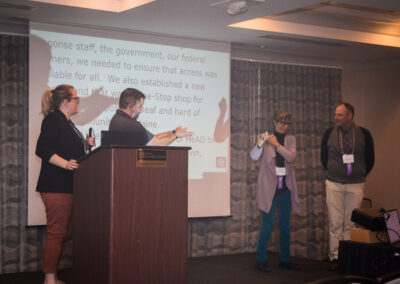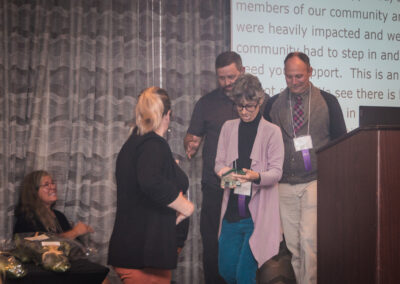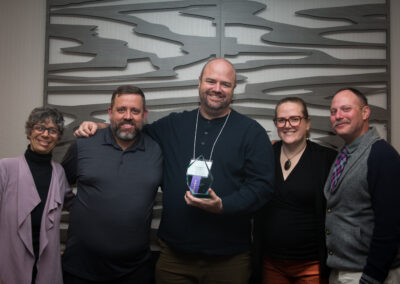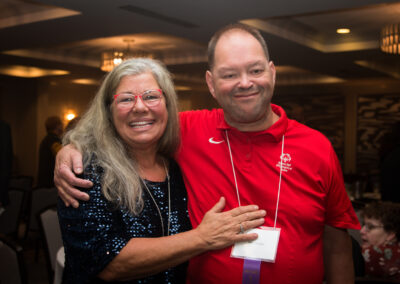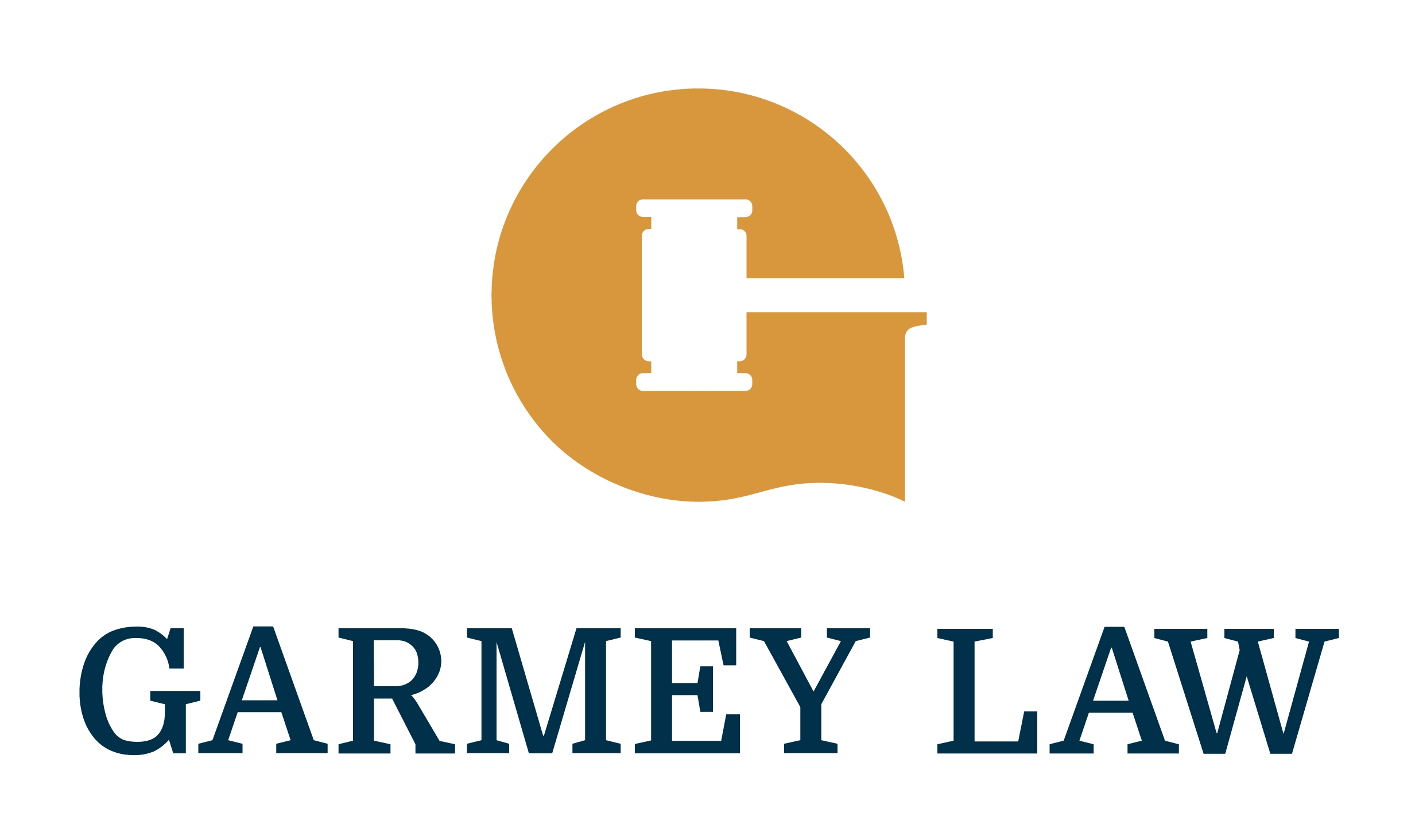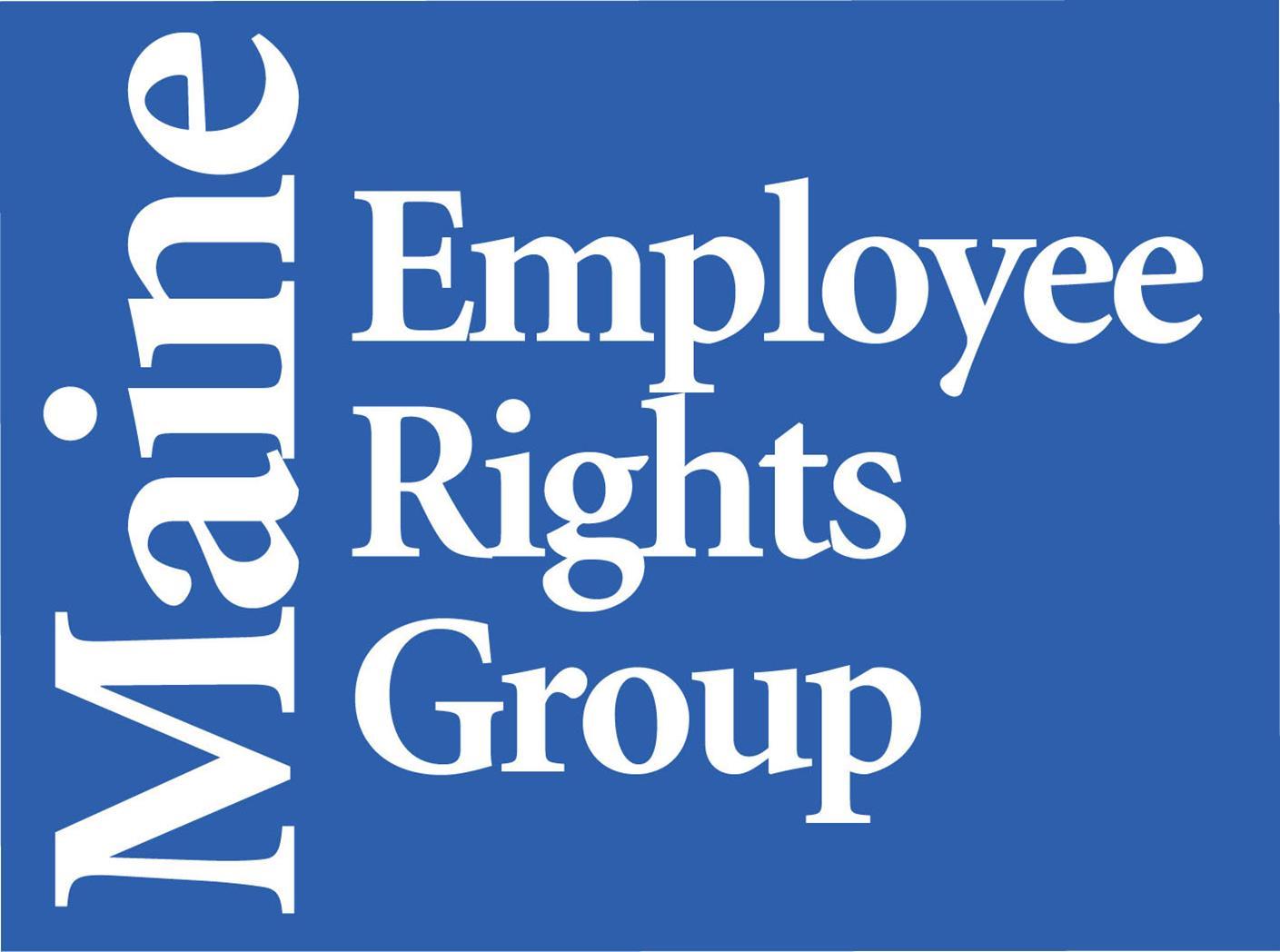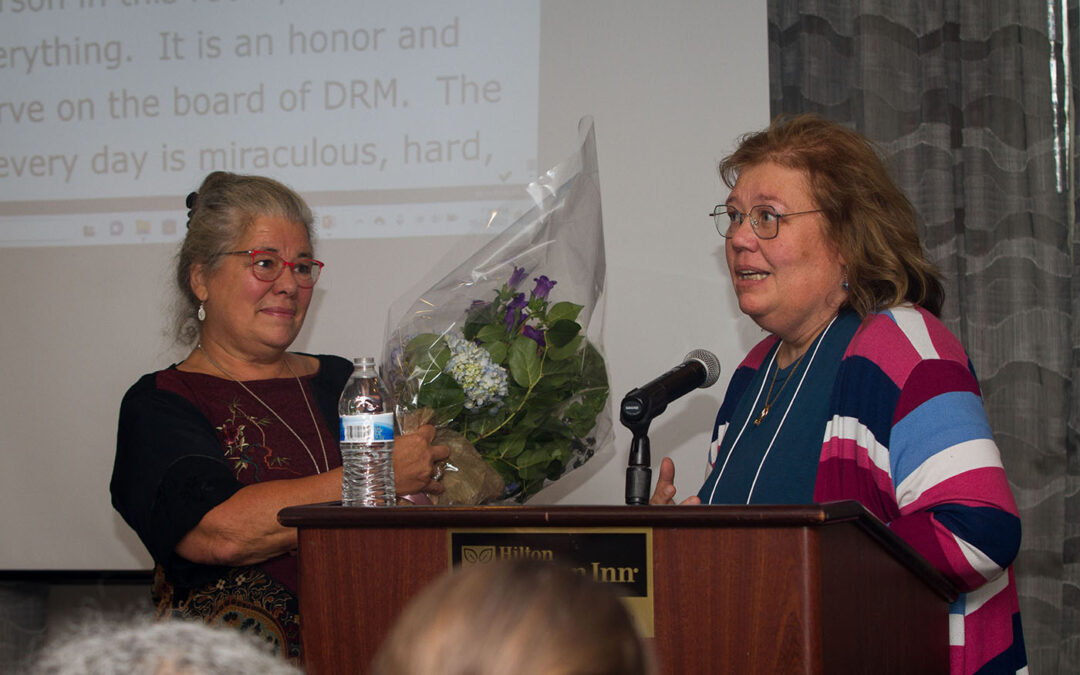
by Julia Endicott | Aug 5, 2024 | DRM Annual Celebration
Disability Rights Maine’s 21st Annual Celebration took place on Thursday October 17th, 2024 at the Hilton Garden Inn in Freeport.
Thank you to everyone who made this event possible!
Ashley Eiler & James Dowd
Alliance for Addiction and Mental Health Services
Law Offices of Joe Bornstein
Maine Association for Community Service Providers
The Law Office of Guy D. Loranger
- Lisette Belanger
- Molly Brown & Kevin Parker
- Center for Community Inclusion and Disability Studies
- Kandie & Kevin Cleaves
- Maggie Hoffman
- Betsy Hopkins
- Bruce & Suzanne Jones
- Mary Green
- Jen & Ben Greslick
- Mark Joyce
- Maine Association of the Deaf
- Scott Murray
- Kim Moody
- William Norbert
- Atlee Reilly
- Peter Rice
- Sara & Mike Squires
- Allan Townsend
- VOA of Northern New England

by Julia Endicott | Jul 9, 2024 | Press Releases
CONTACT: Julia Endicott
978-877-3871
jendicott@drme.org
FOR IMMEDIATE RELEASE
AUGUSTA – Disability Rights Maine is pleased to announce Lauren Wille as its new Legal Director. Atlee Reilly, who has been serving as Legal Director since 2021, will resume his role as Managing Attorney of DRM’s Educational Advocacy program, and continue his life’s work advocating for the rights of children with disabilities.
 “Lauren is a remarkable leader and I am excited for her to bring her strategic vision to the helm of DRM’s legal practice. I am also deeply thankful to Atlee for his exceptional leadership over the past several years, and even more thrilled that he will once again be able to focus his full attention on improving outcomes for Maine’s children,” said Kim Moody, Executive Director.
“Lauren is a remarkable leader and I am excited for her to bring her strategic vision to the helm of DRM’s legal practice. I am also deeply thankful to Atlee for his exceptional leadership over the past several years, and even more thrilled that he will once again be able to focus his full attention on improving outcomes for Maine’s children,” said Kim Moody, Executive Director.
Wille joined Disability Rights Maine in February 2017 as a Staff Attorney on the Developmental Disabilities team and became a Managing Attorney in 2020. Her practice has covered individual representation in matters of abuse and neglect, access to Home- and Community-Based Services, access to competitive integrated employment, and addressing civil rights violations of individuals with disabilities. Wille helps lead DRM’s guardianship reform practice, which addresses the overuse of guardianship and lack of legal representation for Maine people who are unnecessarily placed under guardianship at both individual and systemic levels. In 2023, Wille’s expertise in Probate Court was recognized through her appointment to the Advisory Committee on the Maine Rules of Probate Procedure.
Notably, Wille authored an amicus brief, filed jointly with the ACLU of Maine in In Re Child of Barni A. The case resulted in the Maine Supreme Judicial Court overturning a lower court order that terminated a mother-child relationship after the state failed to provide nursing services to the child who was legally entitled to them. The decision was a victory for disabled parents and children, finding that families should not be separated when the state fails to provide legally required services and accommodations to ensure families can stay together.
“It is an honor to practice civil rights work in this area in which civil rights are so often overlooked. I look forward to continuing to serve DRM and our clients as Legal Director to improve people’s lives through our litigation practice,” said Lauren Wille.
Before joining DRM, Wille worked as an attorney at a small law firm in Portland, representing clients in criminal defense, child protective matters, and appellate litigation. Wille has argued cases before the Maine Supreme Judicial Court and the First Circuit Court of Appeals.
Wille holds her law degree from the University of Maine School of Law and her B.A. from Rutgers University.
###
Disability Rights Maine is Maine’s Protection & Advocacy organization. Our mission is to advance justice and equality by enforcing rights and expanding opportunities for people with disabilities in Maine.
by Julia Endicott | Mar 13, 2024 | Press Releases
CONTACT: Julia Endicott
978-877-3871
jendicott@drme.org
FOR IMMEDIATE RELEASE
March 13, 2024
Augusta – Disability Rights Maine is pleased to announce that Executive Director Kim Moody will join leaders from across Maine, New Hampshire, and Vermont at the White House on March 14, 2024 to participate in the Communities in Action, Building a Better America event.
“I am honored to take part in this event to highlight the many new exciting initiatives funded in part by the federal government, that have the potential to entirely transform our disability service system,” said Executive Director Kim Moody.
Funding from the American Rescue Plan Act (ARPA) to support Home and Community Based Services has seeded ideas and innovation within the system of supports and services for Maine people with disabilities, including for youth 14-18 who have not been served well historically and for people with ID/DD who also experience co-occurring behavioral health needs.
Maine also utilized ARPA funds to start its first crisis-receiving center, a transformative model that is currently being considered for expansion in other areas of the state to address critical gaps for people in need of mental health services.
As a result of new grants supported by federal funds, DRM has:
- Piloted a youth self-advocacy project, encouraging young people to learn new skills to be their best selves;
- Educated and informed thousands of individuals about COVID-19, and the availability of vaccines;
- Conducted an expansive health equity research project, highlighting the disparate impact of healthcare access among people with disabilities; and
- Developed a new program to address the disproportionate sexual violence that people with developmental disabilities experience.
The event is part of a series organized by the White House to highlight recent investments leading to positive impacts in local communities.
###
Disability Rights Maine is Maine’s Protection & Advocacy organization. Our mission is to advance justice and equality by enforcing rights and expanding opportunities for people with disabilities in Maine.
by Julia Endicott | Feb 27, 2024 | Accessibility, News
For millions across the country and world, Maine is a bastion of natural beauty. Consider Acadia National Park alone, which had an estimated 4 million visitors in 2021. Maine State Parks were not far behind with 3.3 million visitors in 2021. Yet for many people with disabilities, both Mainers and tourists alike, reaching outdoor recreational sites is often difficult.
Over the summer of 2022, DRM staff visited 12 of Maine’s State Parks. Our team followed advocate Keenan Weischedel’s lead as he navigated his manual wheelchair around each site. We photographed and took videos as we navigated trails, reached viewpoints, and experienced barriers at each park we visited.
Some of these barriers included:
- Uneven trails with loose rocks and bumps that impede travel for individuals in a mobility device;
- Limited number of universally accessible trails;
- Facilities that were marked as accessible, but were not;
- Lack of sensory or tactile materials;
- Limited availability of accessible water entry points at lakes and beaches;
- and Lack of public transportation available to reach State Parks.
DRM is pleased to share our video, Accessible Outdoors, as a follow-up to our visits. We are grateful to the contributions of Sarah Trites and Lorje Salamonski, who participated in this video and added additional perspectives of why outdoor access is so important for people with disabilities. We also thank Carlos Cuellar of Catama Productions who produced this video.
by Julia Endicott | Feb 1, 2024 | Developmental Disability Advocacy, Press Releases
MEDIA CONTACTS:
Julia Endicott
Communications Director, Disability Rights Maine
jendicott@drme.org | 800-452-1948, ext. 212
Samuel Crankshaw
Communications Director, ACLU of Maine
SCrankshaw@ACLUMaine.org | 859-595-8158 (call/text)
Maine’s highest court reversed a decision that punished a family for the state’s own failure to provide nursing services for a child and accommodate his mother.
PORTLAND – Maine’s Supreme Judicial Court yesterday overturned a lower court order that terminated a mother-child relationship after the state failed to provide nursing services to the child who was legally entitled to them. The Law Court’s decision is a victory for disabled parents and children, finding that families should not be separated when the state fails to provide legally required services and accommodations to ensure families can stay together.
Disability Rights Maine and the ACLU filed an amicus brief with the Court in August 2023. The organizations argued the state should have evaluated whether the mother could have cared for her child if given the nursing services to which he was legally entitled. Instead, the state inappropriately terminated the mother’s parental rights because she was unable to provide complex nursing care on her own, effectively punishing her for the state’s own failure.
The Court agreed. It stated: “The Department [of Health and Human Services], which administers MaineCare [Maine’s Medicaid program], has never provided the child with this level of care. The record contains vague references to nursing shortages and problems surrounding the COVID-19 pandemic, but there is nothing indicating that the Department made any attempt to secure 24/7 nursing care, or anything close to it, for the child . . . Inadequate resources do not excuse a state’s obligation to provide benefits under Medicaid.”
The organizations’ amicus brief also raised the issue, for the first time in the appeal, that the mother herself may be entitled to reasonable accommodations because of a possible intellectual disability. Parents with disabilities are entitled to reasonable accommodations in the reunification process in child welfare cases such as this one. The Court agreed, and ordered the lower court to reconsider whether the mother has an intellectual disability and “how it bears on both parental fitness and the Department’s reunification obligation.” The Court said a parental evaluation flagged concerns about the mother’s cognitive function, but HHS “never followed up to determine whether the mother has an intellectual disability.” The opinion noted that had HHS “inquired further and obtained a diagnosis of intellectual disability, the Department might have owed obligations not only to provide medical services to the child, but also to provide services to the mother to manage the child’s needs in pursuit of rehabilitation and reunification.”
The unanimous court decision highlights several systemic failures in Maine’s child welfare systems where disability is involved. In 1999, the U.S. Supreme Court held in Olmstead that the unnecessary institutionalization of people with disabilities is discrimination, resulting in a shift to integrated, community-based services. However, adults and children with disabilities often do not receive the services to which they are entitled, either because of inadequate resources, as with the child in this case, or a lack of basic understanding that people with disabilities have the legal right to accommodations so they can enjoy the same opportunities as people without disabilities, as with the mother. The Court also noted the U.S. Department of Justice’s recent finding of DHHS’s failure to provide sufficient community-based services to children with behavioral and developmental disabilities.
“The parent-child relationship is one of the most fundamental, and the Constitution protects that right for all people, including people with disabilities,” said ACLU of Maine Legal Director Carol Garvan. “The Court’s decision in Barni A. involves one family, but the impact of this decision will be far reaching. The State of Maine is now on notice from its highest court that there is no excuse for denying necessary services to parents and children, and that the state can no longer blame and punish families for the state’s own failures.”
“The importance of this decision to both parents and children with disabilities cannot be overstated,” said Disability Rights Maine Managing Attorney Lauren Wille. “It sends a very clear message to the Department of its responsibilities: that necessary services must be more than simply ‘authorized’; they must actually be provided. It is also a long-overdue reminder that the Department must accommodate parents with disabilities, who are overrepresented in the child welfare system, throughout the reunification process.”
Source: Joint Statement

